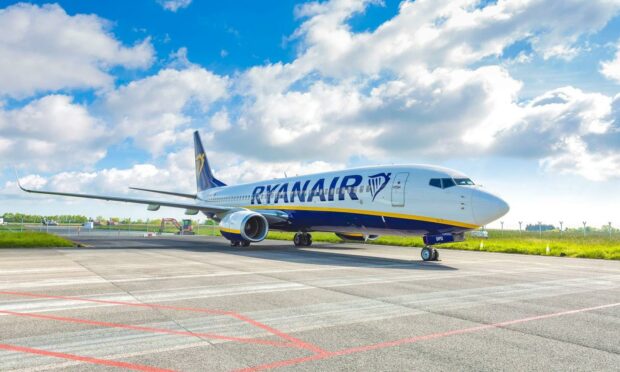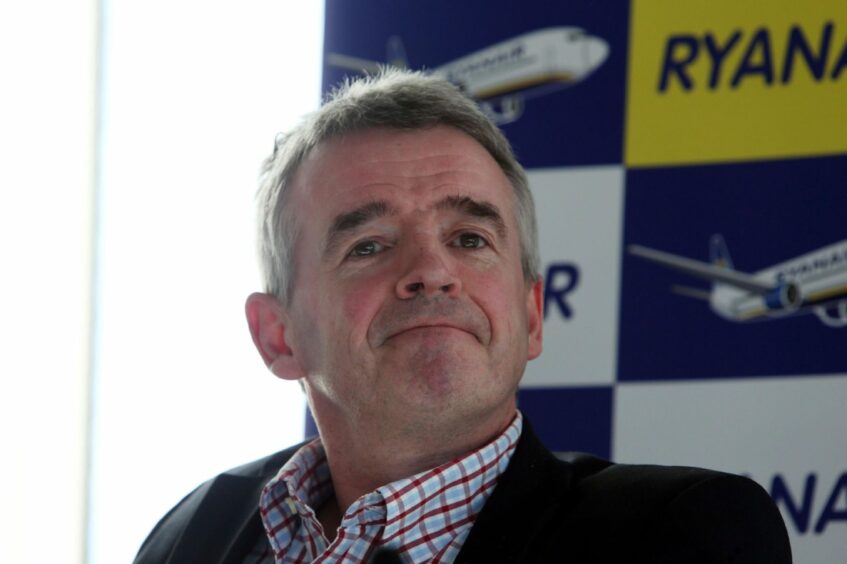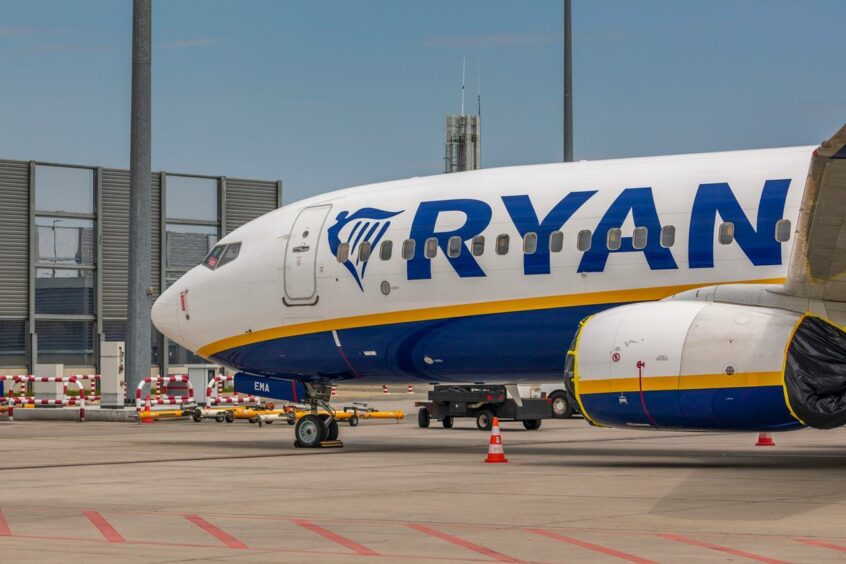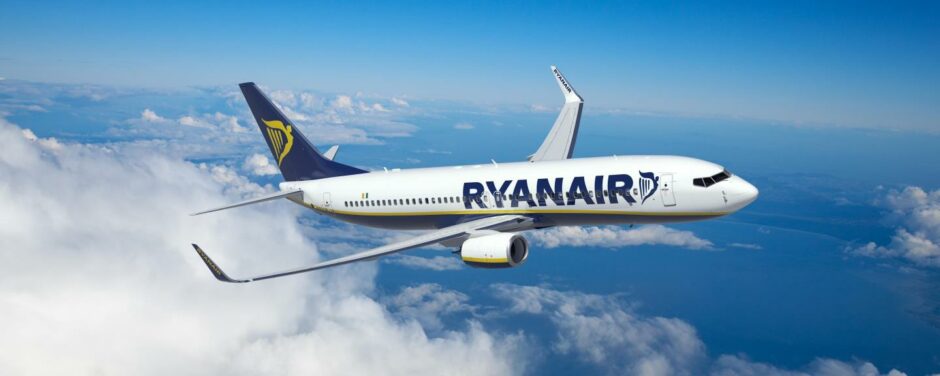Ryanair’s first flight of 2022 from Aberdeen is due to take off to Alicante, Spain, this week amid continuing uncertainty for the aviation industry.
The budget airline yesterday (January 31) cautioned shareholders to expect further disruptions “before we here in Europe and the rest of the world can finally declare that the Covid crisis is behind us”.
But it also said it hoped the rollout of booster vaccines across Europe and growing evidence Omicron is less virulent than other variants, will allow more governments to remove travel restrictions and restore consumer confidence in air travel “well in advance” of the peak holiday periods.
The UK and Scottish Governments relaxed travel rules earlier this month.
Collapse in sales
Dublin-based Ryanair suffered a collapse in bookings over the festive season but its previous passenger volume forecast for the year to March 31 22 remains unchanged at just under 100 million travellers.
Due to Covid uncertainty, guidance on net losses remains within a “wider than normal range” of £209 million to £376m.
Chief executive Michael O’Leary said: “The sudden emergence of the Omicron variant and the media hysteria it generated in December forced many European governments. to reimpose travel restrictions in the run-up to Christmas, which significantly weakened peak Christmas & New Year bookings and fares.
“As a result, December traffic slowed to just 9.5m, well behind the expected target of 11m guests.”
Ryanair flies out of more than 240 airports in 40-plus countries.
Its schedule for 2022 includes flights from Aberdeen to Alicante and Malaga in Spain, and Faro in Portugal.
The first Alicante-bound flight of the year from the Granite City is on Thursday (February 3), while the Faro and Malaga services are due to take off at the end of March.
Scottish airports served by Ryanair also include Glasgow, Edinburgh and Prestwick.
Third quarter results announced by the carrier today revealed pre-tax losses of £110.9m for the three months to December 31.
A year earlier, Ryanair suffered losses of £302.8m as Covid travel restrictions kept people at home and hit the aviation industry hard.
Revenue totalled £1.23bn in the latest period, up from around £284m a year ago, as total passenger numbers across the quarter nearly quadrupled to 31.1m.
Annual passenger numbers are expected to rocket by 50% over the next five years, to 225m.
New aircraft, new jobs
Mr O’Leary said: “This growth will be delivered on a fleet of new B737 ‘Gamechanger’ aircraft, which offer 4% more seats, but burn 16% less fuel and reduce noise emissions by 40%. ”
Ryanair’s five-year growth plan is expected to create more than 6,000 new “well paid” jobs for pilots, cabin crew and engineers all over Europe.
Last October the airline invested nearly £42m in an aviation skills training centre in Dublin.
It plans to invest more than double that in two more, high skills training centres – one possibly in Spain or Portugal and another in central/eastern Europe this year.
The company also recently ordered up to eight high-tech flight simulators which are due for delivery during the 2022-23 trading year.
Ryanair’s record on customer service often comes in for some flak, but in its Q3 results the airline highlighted its highest ever satisfaction score of 89% during the period.
It added: “Our on-time performance in the third quarter, including the busy Christmas/ New Year period, was excellent, with almost 90% of all Ryanair flights arriving in ‘on-time’.”



